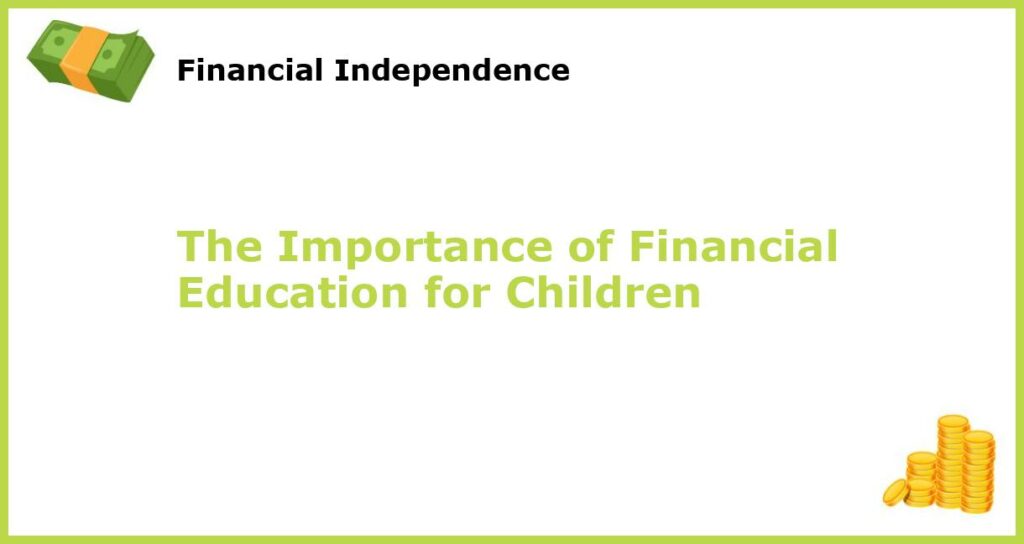Money, they say, makes the world go round. It’s an essential resource that fuels most activities, and from as young as possible, children should be taught how to manage it effectively. Financial education is a vital aspect of their upbringing that cannot be wholly delegated to schools. Parents should take on this responsibility and horn their children’s money management skills. The following paragraphs explain why.
The Early Start

It is not enough to assume that financial lessons will start in higher education or with a first job. It would help if you started teaching basic financial literacy skills to your children as soon as possible. They can learn the difference between needs and wants, how to count money, and information on how you earn money. From a young age, introducing these concepts can help develop healthy financial habits that can be carried into adulthood. It also helps children to value money that they earn and have a positive relationship with money.
Budgeting and Saving

Parents should teach their children how to budget and save as early as possible. Budgeting teaches children how to manage money and how to make better choices. Children should be introduced to spending concepts based on needs vs. wants and the importance of saving some of their money. Teaching children how to save may be a crucial factor in their future financial success. They can learn to delay gratification, be more prepared for unexpected situations, such as financing a new car or saving for retirement, and build up funds for college or other significant purchases.
Cultivate a Sense of Responsibility

Introducing allowances based on expected chores or performance can go a long way in promoting a sense of responsibility that could be carried into adulthood. By doing so, children learn that money is earned through hard work and that they have a responsibility to respect its value. They also learn about setting financial goals for both the near and long-term and the importance of having a purpose for their money.
The Power of Investing

Compounding interest and investment return are powerful financial concepts. Introducing children to the knowledge that money can grow on its own through investment over time can have a profound impact on how they view and employ their funds. It may also foster a sense of entrepreneurship, which can help them make better financial decisions in the future. By understanding the power of investing, children may be more inclined to save early and often.
Borrowing Money

While sometimes necessary, borrowing money can be dangerous and lead to long term debt. Teaching children the dangers of borrowing money can save them from costly mistakes later in life. Understanding how debt and interest work is critical to financial success and can help them avoid getting into precarious situations as an adult.
Money Management

Knowing how to manage money is essential for financial stability. By teaching a child the basics of budgeting, saving, and investing, they will have a solid foundation for making sound financial decisions as an adult. Good money management skills, including keeping track of expenses, balancing a checkbook or ledger, and developing a savings plan, can help them avoid making financial mistakes and falling into debt or financial instability.
Employment and Income
Children should be taught the importance of income and how it works. By teaching them about different careers, income sources, and the importance of having a job, they can appreciate the value of hard work and understand that money comes from effort. They can also learn the significance of education and the role it plays in acquiring a more lucrative job in the future.
Financial Responsibility
Teaching financial responsibility means educating children on how to manage and track their income and expenses. Kids can keep a ledger to keep and monitor their income and expenses. This helps them become more aware of where their money is going and what their saving goals should be. Encouraging them to monitor their funds and balance their budget can help them develop healthy financial habits that will serve them well throughout their lives.
Developing Confidence
The earlier children understand financial concepts and how to handle money, the better equipped they will be in navigating the financial world. They will have the confidence to make informed decisions about their funds, which will help them feel more in control of their financial future. This sense of control translates into confidence with money and how to use it, which is a valuable lesson that will last a lifetime.
Building Financial Independence
Financial independence is a critical aspect of life, and its foundation can be built during childhood. Teaching children financial responsibility and the value of independence can help set them on a path to achieving their financial goals and becoming financially independent later in life. Preparing them on the importance of saving, budgeting, and responsible spending habits puts them closer to actualizing their financial dreams and even passing on the same financial awareness to their children.







